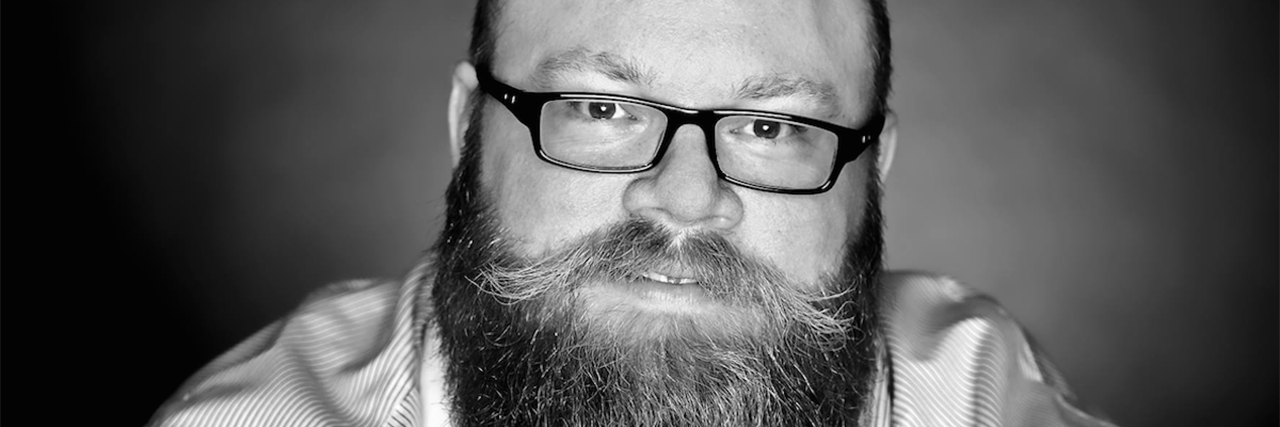Until my diagnosis of ADHD inattentive type at age 30, I felt as though I was living in a deep fog — sleepwalking and stumbling through life aimlessly. Prior to my diagnosis I struggled through every level of the public education system. It took me four years to finish three years of high school and 32 attempts to earn the 18 credits required to graduate including failing grade 10 math four times. I developed anxiety, depression and stomach problems.
Other relevant stories:
• What Does Meth Do to Someone Who Has ADHD?
• Difference Between ADHD and Autism
• ADHD Iceberg
• What is ADHD?
My parents never had me assessed for potential learning disabilities. Not for the reasons I’d like to believe — because I would have been placed in the special education system and potentially had limited opportunities. My parents didn’t have me assessed because they perceived that having a child with a disability was a reflection of poor parenting. They didn’t want to be judged.
My saving grace was football. I started playing football my first year of grade 12; by my second year of grade 12, I was an all star. For the first time in my life I found something I excelled at. As an all star, I received recruiting packages from every major Canadian university with a football team.
I opened them one after the other, and could feel myself slipping further into depression. I couldn’t go to any of these schools. University wasn’t an option, but college was. John Abbott College, a CEGEP on the West Island of Montreal began recruiting out of province for the first time in the school’s history.
The school was tired of losing, and recruiting out of provinces seemed like a great way to make the team more competitive. The defensive coordinator was also the head registrar at John Abbott College and he snuck me in despite my grades being significantly lower than required for admissions. I am extremely grateful for the opportunity they gave me. After graduating from college, I moved back home to attend university and graduated with a Bachelor of Arts degree and a whopping 2.3 GPA. It took me a year longer than my peers, but I did it.
Fast forward to being diagnosed at 30. Prescribed medication gave my brain the jump start it needed to wake my brain from a 30-year slumber, taking my thought process from dial-up to fiber-op. I went back to university to upgrade as a mature student taking five courses and earning a new GPA of 3.7. In 2010, I applied to the Masters of Education program in Counseling Psychology and was accepted on academic probation. I graduated a year later at the top of my class with a 3.8 GPA.
ADHD isn’t what is wrong with me, it’s what is right with me. What was wrong was not knowing and being shamed for something I had no control over. Rather than fix what is perceived to be wrong with someone, I choose to focus on their passion and gifts and use these as the context for communication. As adults, we spend so much of our time trying to get kids to fit into our world without ever trying to explore how we can fit into theirs.
I founded Don’t Dis-My-Ability Consultation Services Inc., an innovative, multifaceted company specializing in the emerging field of neurodiversity, located in Fredericton, New Brunswick, Canada. I created a company and a brand that focuses on my unique gifts. Because I have a unique understanding of my thought process, I know I can’t do just one thing.
Through my company, I provide counseling and psychotherapy to parents and grandparents of neurodiverse children; I consult in a handful of industries ranging from non-profit to the world of animation. I also provide executive counseling and mentor other uniquely gifted, neurodiverse entrepreneurs. In three short years I have established myself as an expert in the field of neurodiversity, and I am sought after around the world for my unique insight.
I am also very proud to say I am a national award winning entrepreneur and Canadian startup icon as the recipient of the 2017 Startup Canada Resilient Entrepreneur Award — awarded to an entrepreneur with a visible or non-visible disability who has impacted Canadian entrepreneurship through exemplary activities and leadership of their companies.
For most of my life I wanted to be like everyone else. This want caused me a great deal of anxiety and depression. Once I realized the only person I needed to impress was myself, my anxiety and depression decreased significantly. I wouldn’t wish my experiences on anyone, but I am at a point in my life where I also wouldn’t trade them for the world.
My story is unique, but I am not alone. Welcome to the world of the uniquely gifted.
Learn more at Don’t Dis-My-Ability Consultation Services.
Image provided by contributor.

